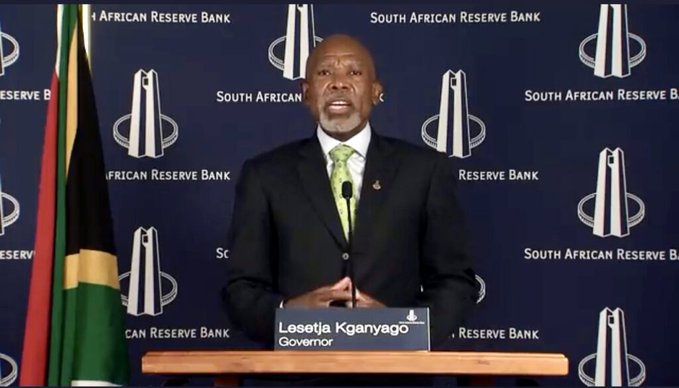South African Reserve Bank warns of prolonged higher global borrowing costs amid rising uncertainty! South Africa’s central bank has warned that borrowing costs across the globe are likely to remain elevated for a longer period, as confidence in the global inflation outlook deteriorates in the face of escalating trade tensions and domestic uncertainties.
In its semi-annual Monetary Policy Review, released in Johannesburg on Tuesday, the South African Reserve Bank (SARB) highlighted growing concern over global economic stability, particularly following US President Donald Trump’s renewed implementation of aggressive trade tariffs.
South African Reserve Bank
“Confidence around the medium-term outlook has reduced significantly due to heightened global trade tensions and elevated domestic uncertainties,” the SARB stated. “Although policy rates are expected to decline further in major economies, the new risks that have emerged suggest they will remain higher for longer.”
Since returning to the White House in January, Trump has pursued a bold tariff agenda. On April 2, he announced new reciprocal tariffs on US trading partners, though he postponed enforcement on most nations by 90 days, maintaining a 10% levy.
Reserve Bank Governor Lesetja Kganyago said global economic confidence had sharply diminished since October last year and that domestic uncertainty had risen significantly. “The inflation and inflation expectation is better today; we lowered borrowing costs and this will support economic activity. However, risks to domestic inflation and growth have risen markedly since the start of the year,” he added.
The SARB recently left its benchmark interest rate unchanged at 7.5% after three consecutive 25-basis-point cuts. Since September 2024, the bank has cut rates by a cumulative 75 basis points.
“Given the upside risks over the medium-term horizon, the current monetary policy stance is deemed appropriate,” the SARB said via X (formerly Twitter).
The bank also noted that for the first time in years, the global risk of disinflation reversing has increased, prompting markets to revise short-term rate expectations upward.
While domestic inflation remains within the bank’s 3–6% target range and is expected to hover near the 4.5% midpoint, the SARB cautioned that uncertainty has increased. Contributing factors include geopolitical conflict, trade tensions, and political disagreements within South Africa’s ruling coalition—especially regarding the proposal to raise value-added tax (VAT).
The SARB estimated that a 0.5 percentage point VAT hike on May 1, followed by another next year, could increase headline inflation by 0.2 percentage points annually.

